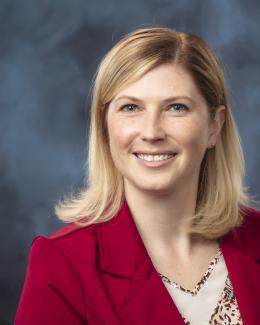What can a B-1 bomber pilot learn from spending a year at a national lab? For Major Matt “Sting” Postupack, a year won't be enough time to absorb the applications of Oak Ridge National Laboratory’s national security research to Air Force challenges.
“Coming to ORNL is unique,” said Postupack. “There aren’t many opportunities for officers to have an assignment as a national lab fellow.” But the future of the bomber enterprise may require pilots to be more equipped to handle nuclear applications for national defense, and Postupack is ready to take this opportunity today to be ready for the future.
Fellow programs across the government give Air Force officers a chance to grow from the tactical application of their initial training to strategic perspective of the broader military picture.
At ORNL, the military fellows program gives first-hand experience where science and application convene for the Department of Energy, the National Nuclear Security Administration, and the Department of Defense.
Postupack has had an atypical career for a pilot. Having dreamt of flying since a child, Postupack earned his wings after graduating from Marywood University in his home state of Pennsylvania. His first assignment, instructing the next class of pilots, was one of his favorites to date. Seeing the lightbulb moments, he said, was very rewarding.
After serving in the B-1 in South Dakota, Postupack reported to the Pentagon in the Colonel Management Office. “It was extremely humbling to see how things worked at the headquarters level,” he said. “The Air Force takes a great deal of effort to manage talent.”
Postupack next came to Oak Ridge, eager to learn from scientists. Exposure to different perspectives helped him grow into a mid-career officer, and this opportunity in East Tennessee is a breath of fresh air to understand how research provides a conduit between capability and national defense applications.
UT-Battelle manages ORNL for the Department of Energy’s Office of Science, the single largest supporter of basic research in the physical sciences in the United States. The Office of Science is working to address some of the most pressing challenges of our time. For more information, please visit energy.gov/science. — Liz Neunsinger




